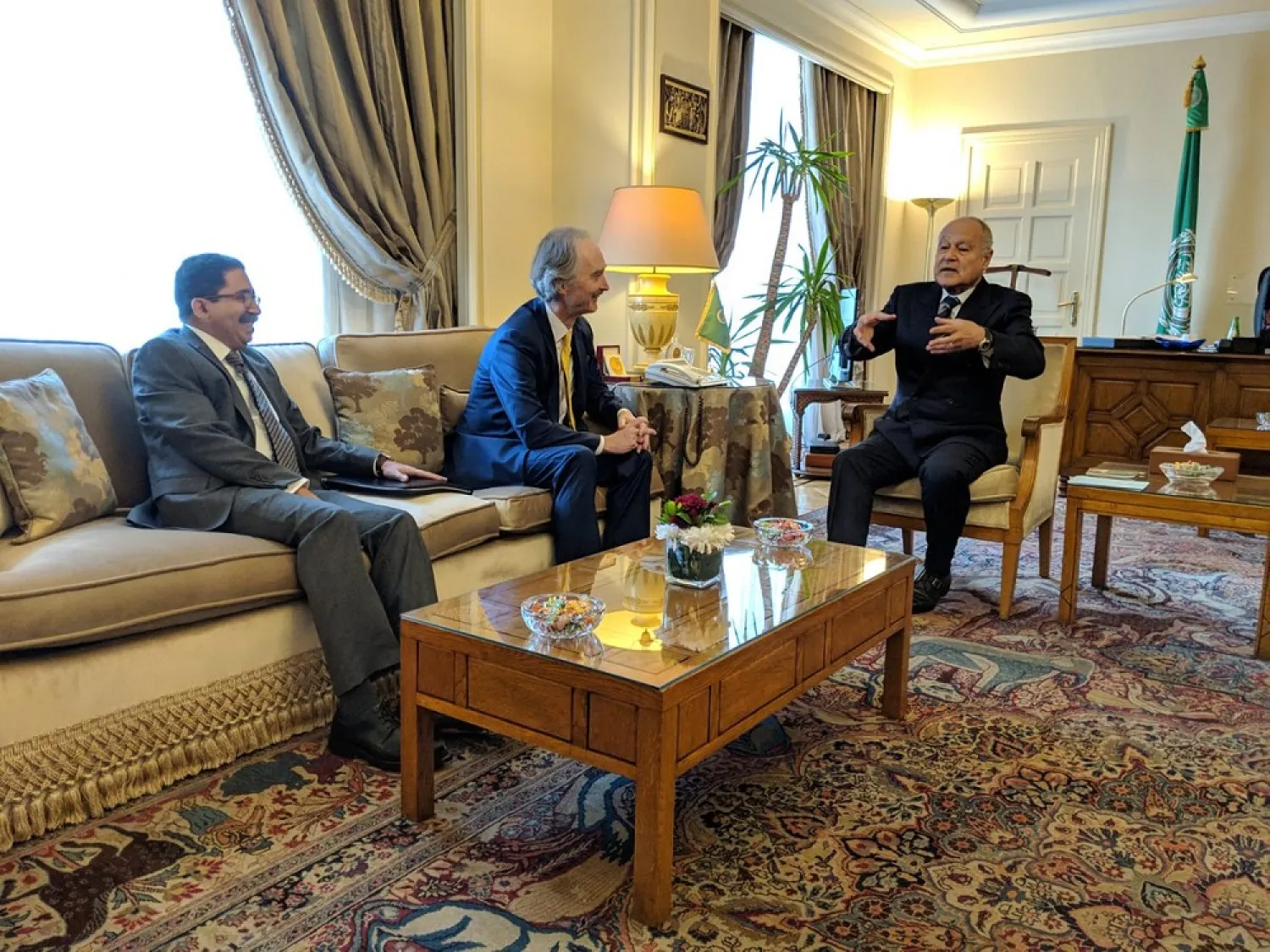Egyptian Foreign Minister Sameh Shoukri received in Cairo on Sunday United Nations special envoy to Syria, Geir Pedersen, who is on a tour of the region.
The two officials discussed the latest developments in the war-torn country, stressing the need to “revive the stalled political process.”
A foreign ministry spokesman said that Cairo is keen on restring the unity and stability of Syria.
A political solution, he continued, must be based on UN Security Council resolution 2254 and be implemented away from foreign meddling that undermines Syria’s stability.
These measures must coincide with efforts to combat terrorist and extremist groups in Syria, he added.
Moreover, Shoukri emphasized the need to direct greater international attention towards the humanitarian situation in several Syrian regions.
Pedersen said that he looks forward to maintaining coordination with Egypt on Syria in the future, revealed the spokesman.
The envoy later held talks with Arab League Secretary General Ahmed Abul Gheit, who called for ceasing foreign meddling in Syria.
He echoed Shoukri’s demands for reaching a political solution, said the Arab League spokesman Mahmoud Afifi.
Abul Gheit underscored to the envoy the central role his organization is playing in tackling the crisis, saying that the issue concerns first and foremost an Arab country.
Pedersen is set to travel to Lebanon on Tuesday.
Last week, the envoy had held talks with Saudi Foreign Minister Ibrahim al-Assaf on the sidelines of the World Economic Forum in Davos.
On January 21, he met in Moscow with Russian Foreign Minister Sergei Lavrov, stressing the need to implement resolution 2254 to ensure the safe return of refugees to their homes.
Pedersen had kicked off his duties earlier this month by holding talks with Syrian officials in Damascus.









